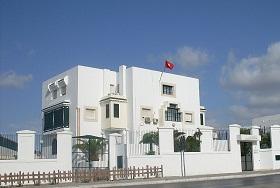Using AI to control energy for indoor agriculture
30 September 2024
Published online 25 October 2011

Tunisia has launched a programme to promote science research and innovation, which will run from 2011 to 2014 with a €12 million fund provided from the European Union (EU).
The money will not be used to build new research centres or laboratories, says Bahri Rezig, director general of the Tunisian Agency for the Promotion of Scientific Research (ANPR) based in the capital Tunis. "Rather, we want to build strong scientific partnerships between Tunisian researchers and their counterparts in the EU states by linking them through joint scientific research projects."
The programme, announced on 12 October, will focus on research areas that are of strategic importance to Tunisia, such as renewable energy, healthcare, the environment and water. ANPR will distribute the money according to national needs.
"I was involved in several small joint research projects with neighbouring states and member states of the EU and it was always a very positive experience. I think this new programme will be useful to Tunisian researchers and in promoting research in general," said Redah Landoulsi, a geologist at Borj-Cedria Science and Technology Park, Tunisia.
Rezig hopes the initiative will address frustrations that Tunisian researchers have voiced since the political revolution in early 2011 by bringing much needed reforms to the research sector and creating an environment of innovation.
He is hopeful any new Tunisian government will enact legislation to increase salaries and remove the bureaucratic hurdles researchers face when applying for research funds. Earlier this week, Tunisians voted in their first free elections post the revolution to elect an assembly that will form a new government.
The programme will forge links between academic science research and the Tunisian industrial sector. The German Society for International Cooperation (GIZ), one of the EU supporters of the programme, will analyze the market needs and simplify coordination between the two sectors "to maximize the effect of research on industry," says Rezig.
Tunisia aims to increase its technological exports from the current 30% of overall exports in 2011 to 50% of overall exports by the year 2016, said Abd El-Aziz Rasaa, Tunisian minister of industry and technology, during the announcement of the programme on 12 October in Tunis.
doi:10.1038/nmiddleeast.2011.144
Stay connected: